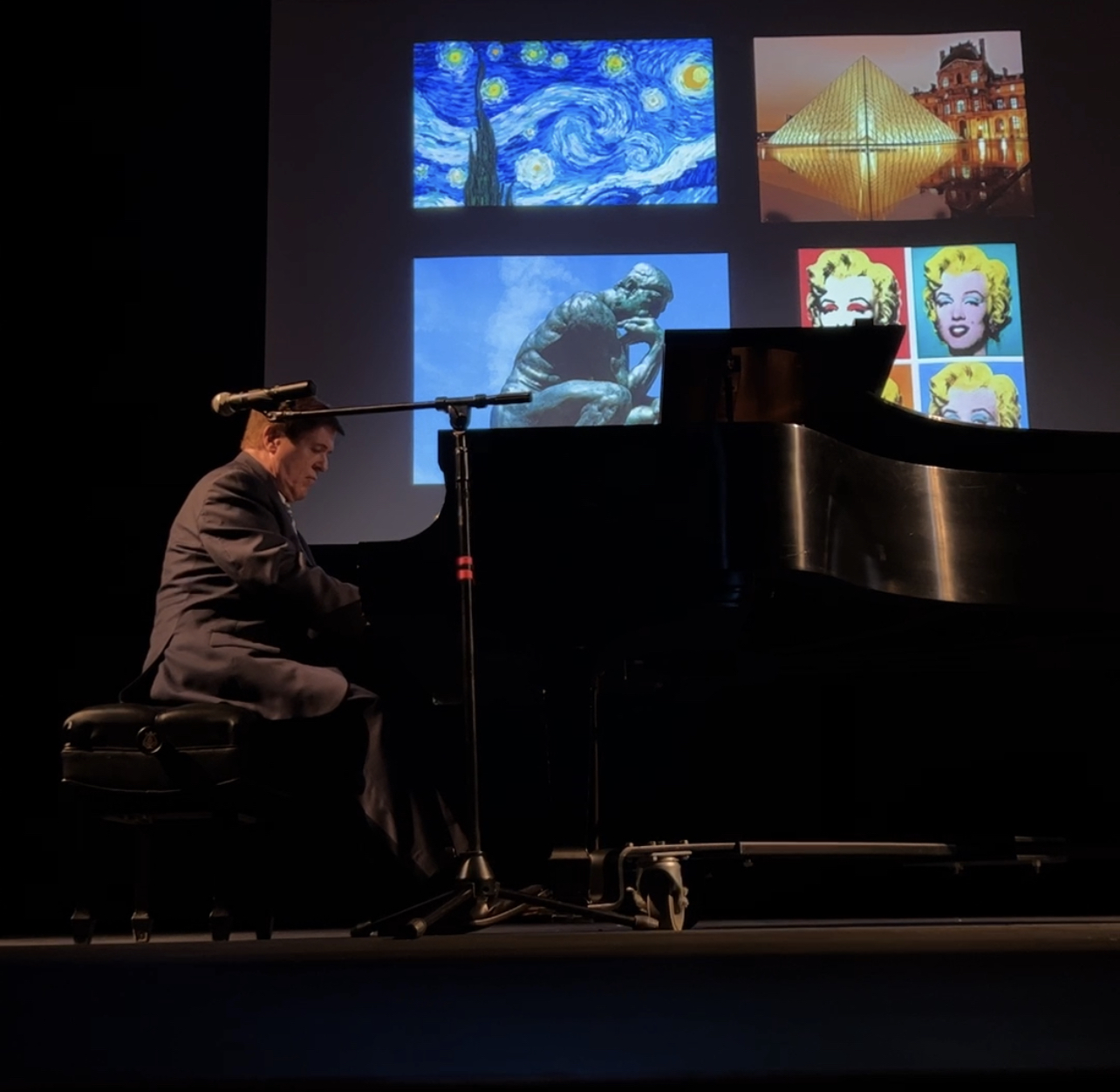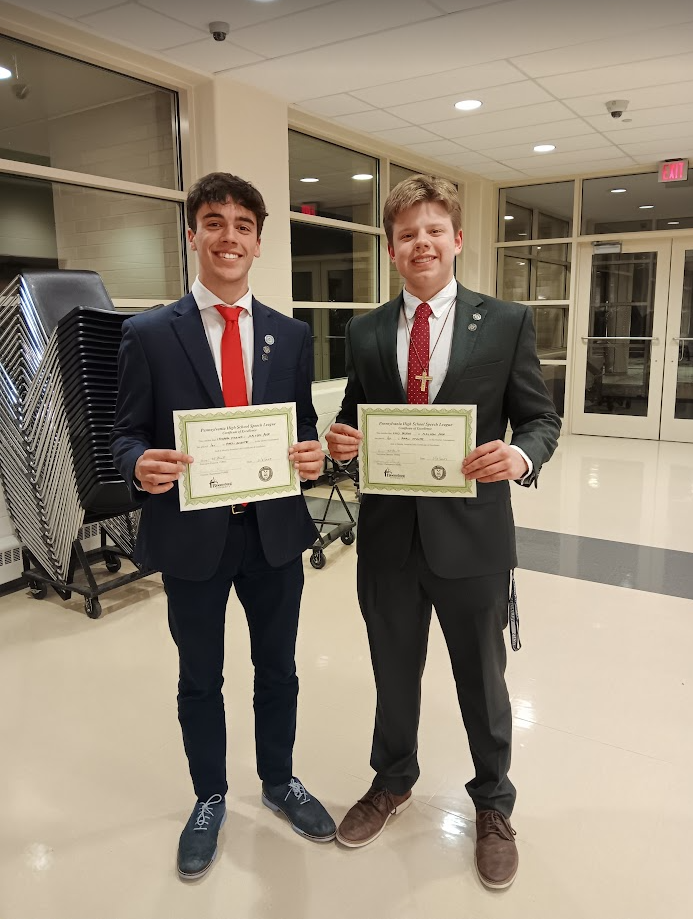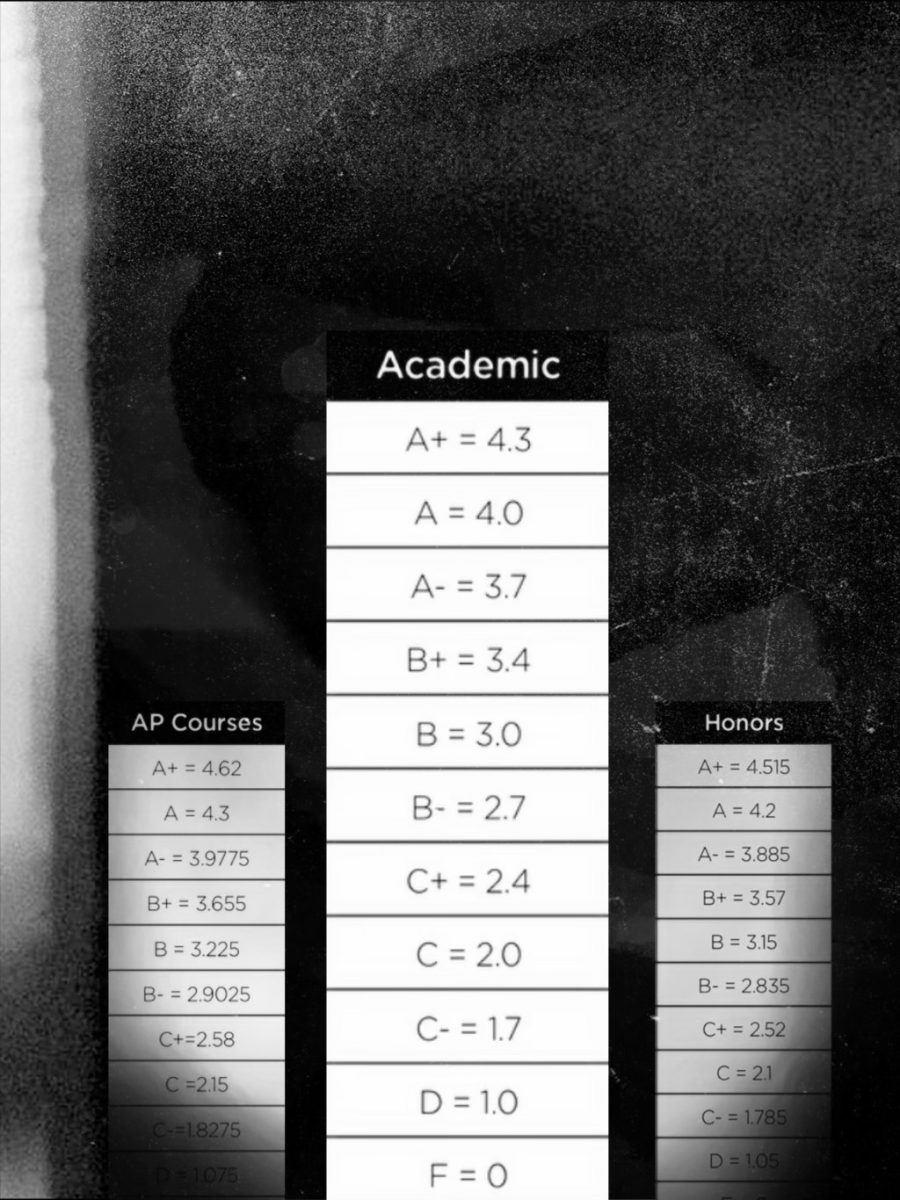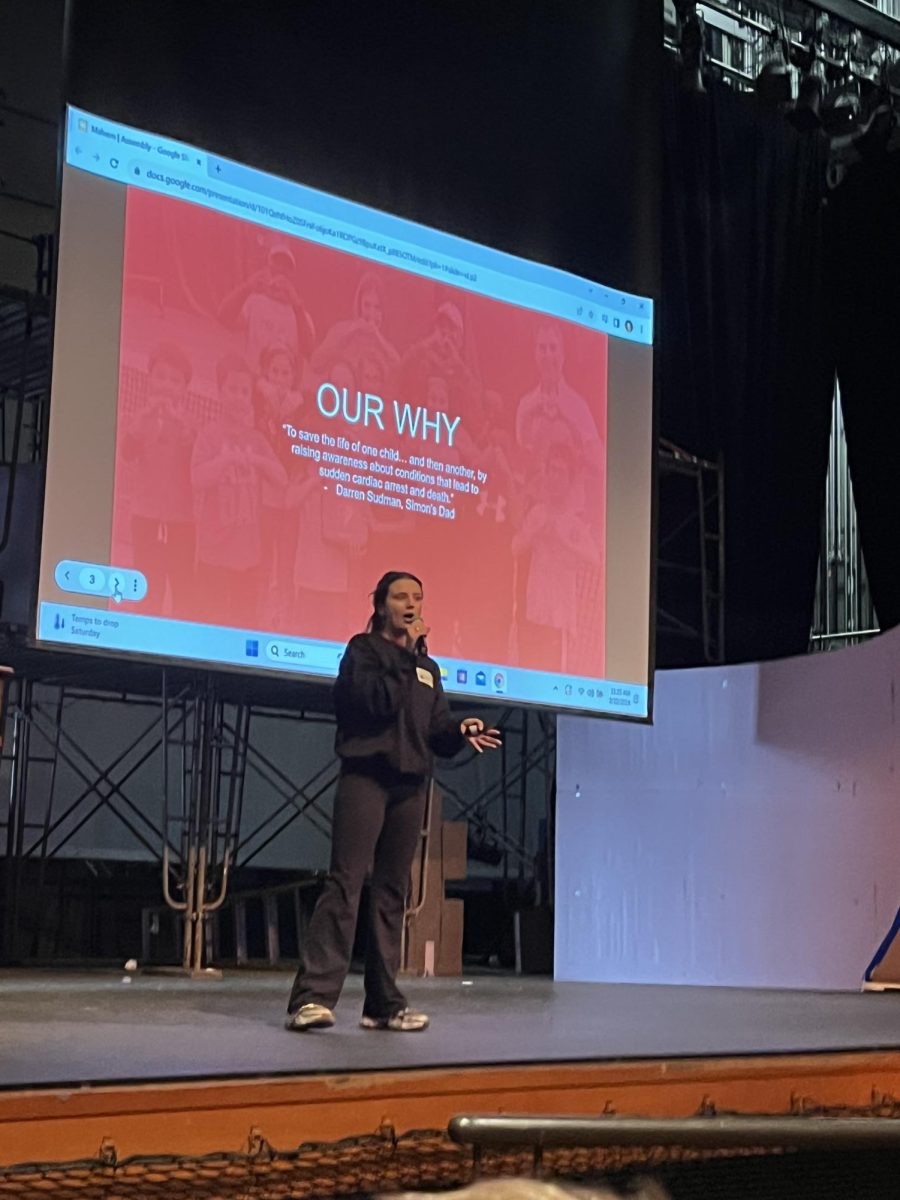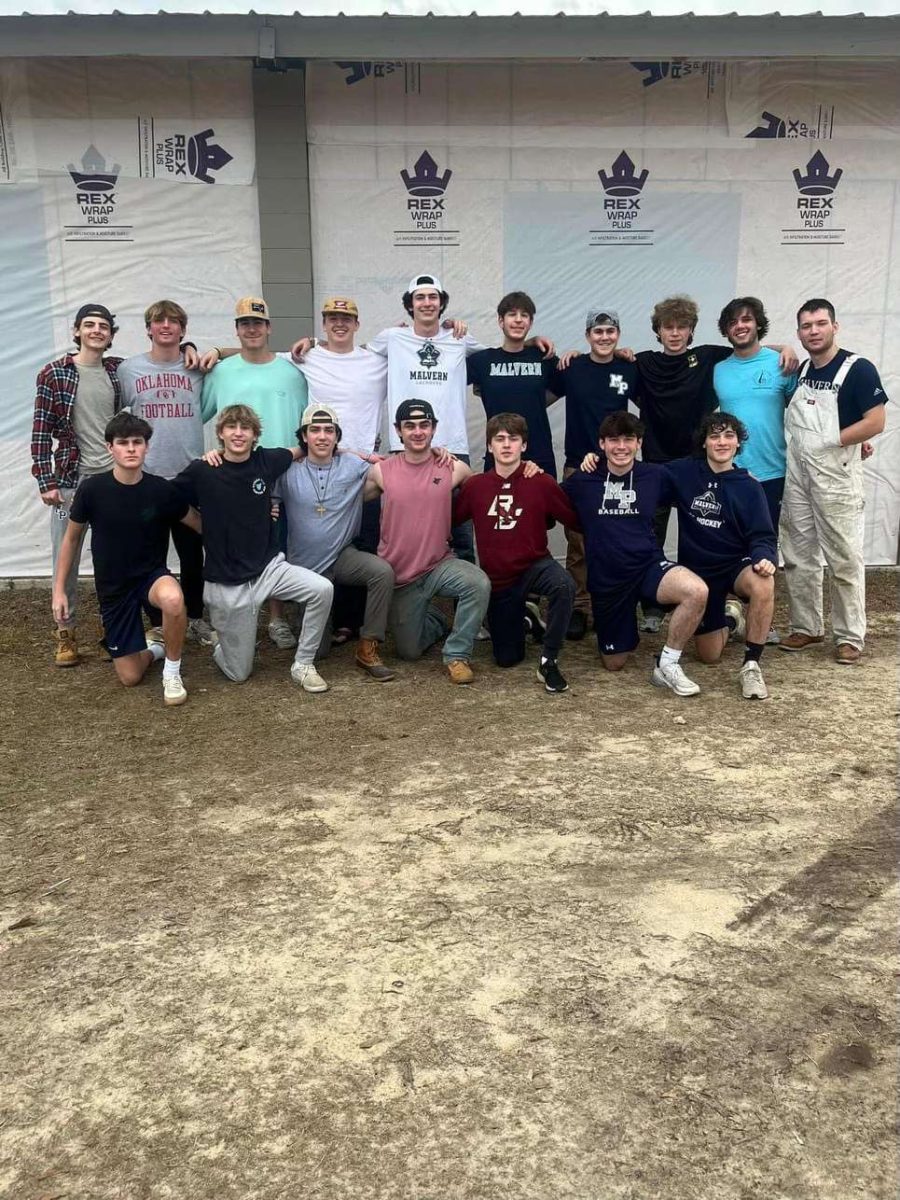Malvern Prep has gone through many changes throughout the past couple of years. New buildings, a new schedule, and new faculty have been introduced. Alongside these changes, Malvern has launched a program tailored to help students learn from the best. Recently, students have been filling their community time schedules with various courses that introduce them to topics ranging from real estate to improving their performance in sports games. Seeing the success in this, it was time for Malvern to bring in someone with expert experience for the long term.
Mrs. Lappas, an AP Government teacher, is responsible for this newfound interest on campus. Taking on a new role within the past two years, Mrs. Lappas now also serves as the director of micro-courses and partnerships.
“I try to establish different partnerships and bring various people to our community to expose you to different subjects,” Mrs. Lappas stated.
All micro courses at Malvern are organized and set up with the help of Mrs. Lappas. However, Mrs. Lappas contacted other alums for assistance in setting up a new program. Mrs. Lappas also used this experience to emphasize the importance of staying in touch with classmates.
“The program is the brainchild of two alumni who are very involved at Malvern, Michael Riordan and Bob Demento. They are a few years apart, highly successful, and very generous to Malvern, having a lot of time to give. I befriended them through programs at Malvern, and they know everyone. They’re social guys. They have stayed in touch with all of their Malvern brothers, which is something you guys should take a page from, and it’s just amazing,” Mrs. Lappas said.
Through alumni Bob Demento and Michael Riordan, Mrs. Lappas learned about their connections with people who have achieved unparalleled excellence in their fields.
“Demento and Riordan started saying, ‘Wouldn’t it be great if we could bring people to Malvern who exemplify excellence, just to show you that there are many successful people in the world?’ A person who exemplifies excellence in their field rises to the absolute top,” Mrs. Lappas remarked.
Not long after that conversation, Mrs. Lappas began to meet some of the experts in their fields and witness their impact on a smaller number of students.
“Mr. Riordan introduced me to a woman, Dr. Martha King, at Princeton, and she’s the country’s foremost authority and curator of Jefferson’s papers. She knows more about Jefferson than anyone in the country. She Zoomed into my class a few times last year and was pretty awesome. Just listening to her speak to some of the kids was on a different level. Many of our students go to these upper-tier colleges and don’t know what they’re in for. It’s a different world. It’s an intellectual world. And I thought it was essential to see what that looks like. What if we had a scholar in residence? What if we invite someone to Malvern who exemplifies excellence in their field every year?” Mrs. Lappas stated.
That is precisely what Mrs. Lappas began working on, using Mr. Riordan and Demento’s connections to identify an expert in their field.
“Mr. Demento said, ‘You know, Bill Carr was the artist in residence at Immaculata for years. Maybe he can help us by describing how to establish a program like that.’ We wanted to make sure it was top-notch. We wanted it to be something that could endure. So, we talked to Dr. Carr. I don’t know if Mr. Demento had it in his mind that he wanted to push Dr. Carr to the head of the list, but after meeting Dr. Carr, you couldn’t ask for a better role model,” Mrs. Lappas said.
More than just his expertise, Mrs. Lappas was intrigued by Dr. Carr’s message about pursuing passions rather than material gain.
“He’s the epitome of getting out what you put in. He practiced from age 14 through his 30s and 40s, 12 hours a day. His entire life was dedicated to the piano. He had a passion for it and was driven to do it. And guess what? You know some CEOs are driven, but what are they driven towards? They’re driven to make money. And that’s okay; our society rewards that. But for Dr. Carr, it was just art for art’s sake. It was beautiful,” Mrs. Lappas remarked.
As a Malvern alumnus, Dr. Carr had always been intrigued by the idea of returning to Malvern and giving back. Dr. Carr shared how he initially heard about Malvern and what made it special.
“I graduated in 1968, so that’s like 100 years ago. I went to Malvern and loved it here. Malvern laid the foundation. I spent many years in school, probably almost 16 years of college. Malvern laid the foundation through discipline, dedication, how to achieve, how to stay focused, how to set yourself apart, and how to remain competitive, but also how to be a team player. I think Malvern ignites that in its students. I think Malvern students are very well-prepared for life with the Malvern education,” Dr. Carr stated.
Dr. Carr exemplified this belief through his accomplishments immediately after graduating from Malvern.
“When I left Malvern, I received a scholarship to the College of Music and Dance at Temple University, the Boyer College of Music. I earned my first master’s degree at Temple and continued to the Juilliard School of Music in New York, a renowned music school. I studied with a great teacher, Adele Marcus, for almost 11 years. Afterward, I attended the Catholic University of America, where I earned my Doctor of Musical Arts degree in piano performance. Subsequently, I studied with a concert pianist who lived in Vienna and East Germany when it was communist. I studied with him at the Munich Conservatory and earned a master’s degree in international relations and international business at Wharton. Afterward, I delivered lectures and concerts for corporations for about 20 years and served as a consultant for the Graduate School of Business at Columbia University, Dartmouth College, and Penn’s Wharton School,” Dr. Carr remarked.
During his impressive educational journey, he was invited to serve as the resident artist at Immaculata University. At Immaculata, Dr. Carr realized that his knowledge of creativity could be applied beyond the stage.
“I had a position as an artist in residence at Gwynedd Mercy University. I did concerts and spoke extensively about creativity to the audiences. During my conversations with the audience, people from an oil company said, ‘Would you like to come and talk to our executives?’ I could barely change a tire, so I couldn’t imagine what I would say to a group of oil providers. I tried to establish a connection between performance in music and performance management. I gave those talks for about a year,” Dr. Carr stated.
Years later, when Dr. Carr was invited back to Malvern, he was excited to return to the school that ignited his passion for learning.
“I’ve always had Malvern in the back of my mind. Malvern becomes a part of any student who goes here. It just becomes part of your soul, and as a result of that, I think you carry that through in almost everything you do. That grounding and education from Malvern enable you to move forward positively. Coming back here later, it’s another world now. Seeing what they’ve created for the school is marvelous because it’s very different from when I was a student. I think I see the same climate and culture here,” Dr. Carr stated.
Through Malvern and various other forms of education, Dr. Carr also developed an understanding of the qualities that make up an excellent education.
“I think someone who instills your passion for what you’re doing. I still practice four or five hours every day. That came from my teacher, Adele Marcus. She taught you how to practice everything and look at music in many different ways. I thought it was meaningful, the kind of relationship that Malvern instills in students with their relationship with teachers. We had that close relationship with our teachers at Malvern. So, when I found a teacher, I could identify with and listen to, it was wonderful,” Dr. Carr stated.
Through various teachers and forms of education, Dr. Carr realized his love for creativity and the need to share that love with others. This idea is the framework of what Dr. Carr hopes to bring to Malvern.
“What I find intriguing about creativity is that today’s students focus on learning through summation, evaluation, and assessment. That’s really how learning is done because you can measure that. It’s easy to measure how a student does. We can ask ourselves two questions. We could ask ourselves, ‘How smart is this student?’ or, ‘How is this student smart?’ They’re two very different questions. I think students like athletics so much because it focuses on their ability and moving that ability forward rather than someone setting the bar and you having to measure up to it. If you don’t, then you don’t do well. I think creativity, in my opinion, is another way of learning because it’s not necessarily about summation, assessment, and evaluation. Creativity is about process learning. It’s about modeling, and it’s about facilitation. Like my teacher at Juilliard, she would never assign me a piece of music without sitting down and playing it for me or showing me what it was. I’m sure they do that all the time in athletics, too. They have to because how do I know how to throw a slider as a pitcher if somebody doesn’t show me what has to happen physically to do that? The same thing happens with music in terms of teaching, and I think the learning process is important because students today are so used to technology. Their world is about modeling. But I find there is resistance in education because I think it’s harder to control a creative learning process than it is to control an assessment-created standard process,” Dr. Carr said.
Dr. Carr elaborates on the idea that creativity is a way of learning that contrasts with the typical pattern of assessing understanding.
“I think many students are often lost because they may not do well in a specific class type. When I was at Malvern, I was terrible at geometry. But no one explained the process to me. When I went to Wharton and had to take a statistics class, I had a simply brilliant professor. His name was Howard Perlmutter, and Howard said to me, ‘You’re an artist. I’m going to start with the answer and go backward for you. Let’s see if this makes any sense to you.’ Suddenly, I was like, ‘Why didn’t somebody do this like 20 years ago?’ I did poorly because no one took the time to go backward. This is the piece, but that’s the answer; how I got there is the issue. I think that type of learning is another way students will respond well if they understand how the process works. That would be what I would hope to do here at Malvern,” Dr. Carr said.
Dr. Carr goes into depth about how he hopes to bring this new learning method to Malvern by breaking it down into steps.
“I want to show them that there are three steps to the creative process. One is called understanding the problem. The second one is generating ideas. The third is planning for action. For example, CEOs and businesses often use morphology, where they will have an idea and deconstruct it in various ways to make sense for finance, distribution, and production. They can take that single issue and view it from many different angles. Then it has meaning for each group, and they get their result because their idea runs through the entire corporation,” Dr. Carr stated.
Other teachers at Malvern are excited about Dr. Carr’s residence and the value he can bring to students. Jackie White, a middle and upper school studio art teacher, shared her thoughts on Dr. Carr’s residence.
“I think it’s interesting to see somebody who has taken his talent to the highest level possible. I know it’s probably hard for some students to get into that type of music and what he does, but I think it’s nice to see something other than just sports. There are things that people do that are at the most excellent level possible,” Ms. White stated.
Furthermore, Ms. White remarked on how his approach to learning with creativity will apply significantly to all students, regardless of their interests.
“I think we’re living in such a creative world right now that we need to harness and keep understanding that creativity. We use things designed by creative individuals working in collaboration with others. I think he can convey that message and hopefully capture students’ minds to realize there’s more to creativity than just creating a beautiful picture,” Ms. White said.
Mr. Delpizzo, the instrumental music director and God band director, shared his thoughts on Dr. Carr’s residence and what students stand to gain from his expertise.
“I hope that he opens up the minds of everybody. Learning to be creative and discover your inner voice is paramount to success. Creative individuals like Elon Musk are the ones who accomplish great things. Not only is he intelligent, but he’s also extremely creative. Plato said, ‘I would teach children music, physics, and philosophy, but most importantly music, for the patterns in music and all the arts are the keys to learning.’ When you start to delve into it, you realize it.”
Dr. Carr described the impact he hopes to leave on students and what he hopes they will take away.
“I hope they walk away from this experience feeling more empowered, knowing that they can excel in courses they might have found challenging. I hope they learn that there is a process they can follow to make that happen. They can soon understand things differently and that the process is important. So I think that’s my overall hope,” Dr. Carr stated.
As for the future of the scholar/artist-in-residence program, Mrs. Lappas and others have already begun discussing future experts they can invite to Malvern in the following years.
“We’ve assembled a committee of people to help select next year’s artist/scholar-in-residence. This year’s residents will also be part of that committee. So, Dr. Carr will be on that committee this year to help choose next year’s residents. We’re considering a lot of names. We want this to be an honor for someone if they’re selected to be the scholar-in-residence at Malvern. We’re looking at very high-level individuals.
However, the program still has questions regarding the criteria for selection and invites newfound possibilities for the school and the students.
“I think one of the questions we’re still unsure of is whether one of the prerequisites is that they must be a Malvern alum. I hope not. I’d like to see women come in and be the scholar-in-residence. I hope it’s not a requirement, but we’re considering that. We thought it was important for the first one to be an alum,” Mrs. Lappas stated.
The future of the scholar/artist-in-residence program is bright and exciting. Dr. Carr has immense knowledge and expertise to share with the students and can make Malvern an even greater educational experience. Learning to solve problems in a new way and change how education approaches teaching students is no small feat, but Malvern is fortunate to have Dr. Carr on campus.


